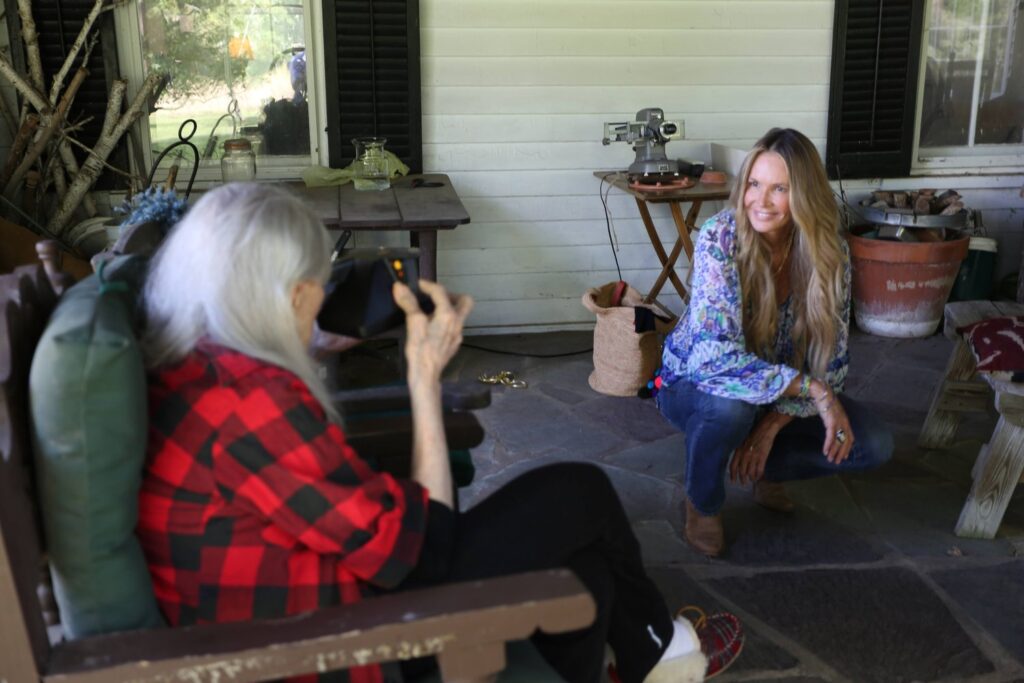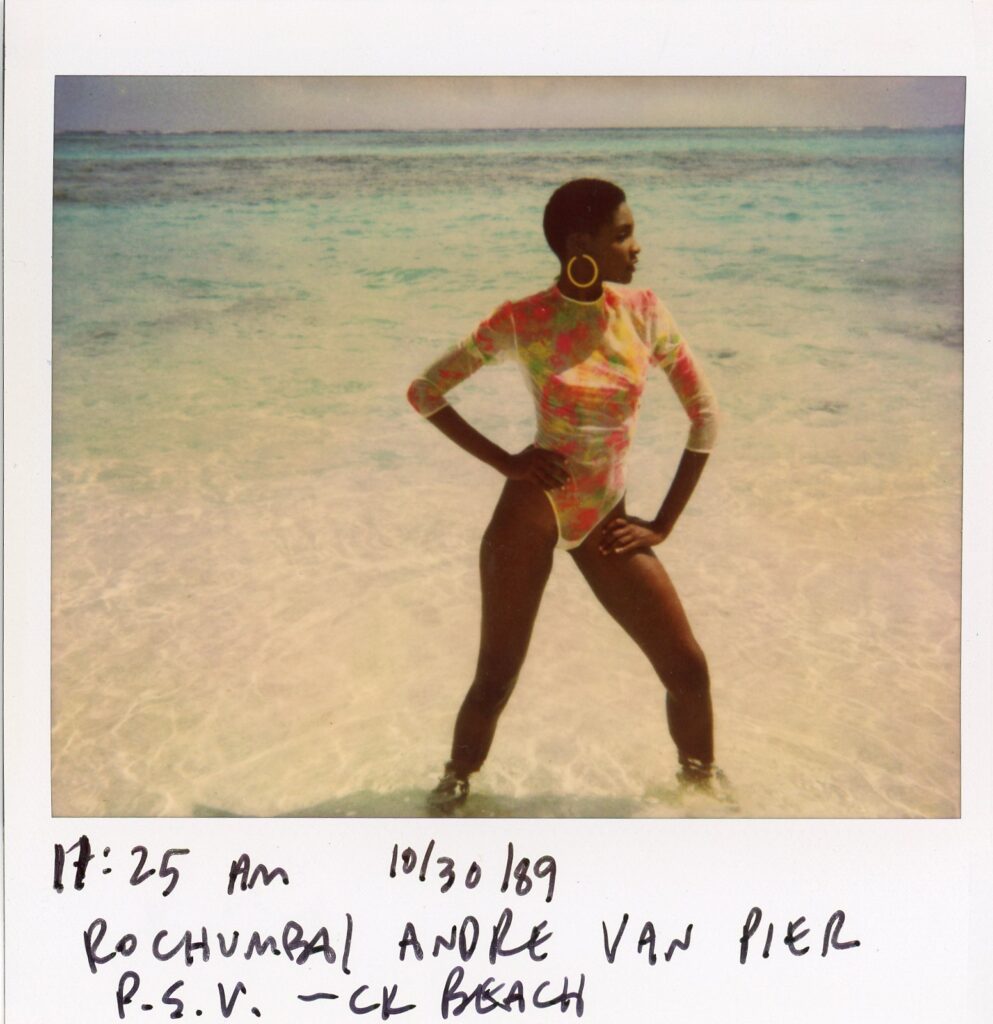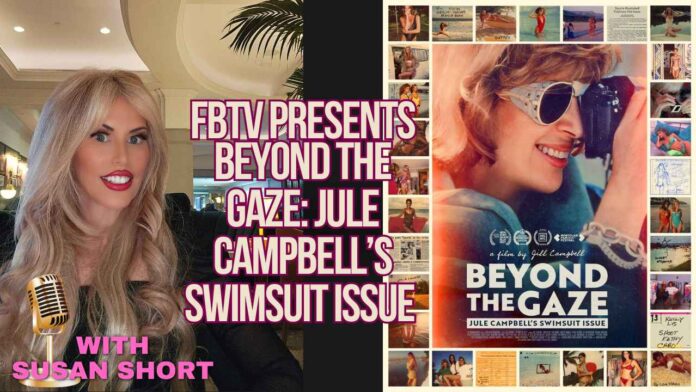Behind the Lens: Beyond the Gaze and the Untold Story of Sports Illustrated’s Swimsuit Trailblazer
Jule Campbell navigated a sexist workplace while confronting accusations of objectification during her 32-year tenure as founding editor of the Sports Illustrated Swimsuit Edition. Unyielding in her pursuit of artistic excellence, Campbell fortuitously launched mogul models and a mega-franchise. At 95, Campbell reflected on her legacy and impending mortality with the grace and intuition that guided her career, presenting a fair and balanced portrait of a complex and fascinating woman and her controversial career.
In the 1960s, Jule Campbell shattered glass ceilings, transforming a struggling magazine into a media empire. The documentary Beyond the Gaze, directed by Jill Campbell—Jule’s daughter-in-law—chronicles her reign and her pivotal role behind the lens of one of the most debated media properties in history: the Sports Illustrated Swimsuit Issue. With rare access and heartfelt perspective, the film offers a personal and intimate exploration of a woman whose legacy continues to ripple through media and culture.
Jule began her editorial career at Glamour before joining Sports Illustrated. In 1964, she was tasked with filling a winter issue with fresh content. The result? A bold and untested idea: a swimsuit photo spread. The first issue featured model Babette March and kicked off what would become a cultural phenomenon.

Over three decades, Campbell redefined the Swimsuit Issue. She was a visionary who emphasized that the models should be known not just for their looks but for their personalities and intelligence. Under her guidance, models like Tyra Banks, Elle MacPherson, Roshumba Williams, Cheryl Tiegs, Christie Brinkley, and Kathy Ireland became household names. More than just pretty faces, these women were presented as role models—confident, charismatic, and powerful. Campbell ensured their names were known, their stories told, and their voices heard. This emphasis helped birth the concept of the supermodel.
At the heart of her leadership was a keen awareness of the cultural climate. Campbell walked a tightrope between artistic expression and public criticism. The Swimsuit Issue faced accusations of objectifying women. Campbell didn’t deny the allure of the images but stood firm in her mission to present beauty with dignity, strength, and agency. She collaborated with world-renowned photographers and insisted on portraying the women in ways that celebrated their uniqueness. Her standards were high, and her instincts were sharp.
In later years, Campbell’s work became even more poignant. As society’s understanding of representation evolved, she embraced broader ideals. Though the Swimsuit Issue began with a narrow view of beauty, her influence helped it grow into a platform for body positivity and diversity. Her early steps laid groundwork that others would build on, pushing for even more inclusive standards.
Jule Campbell passed away in November 2022 at the age of 96, leaving behind a legacy that is both groundbreaking and complicated. In 2024, Beyond the Gaze premiered to acclaim at film festivals including the Sarasota Film Festival. The film offers an unfiltered look at her life, her work, and the evolution of the Swimsuit Issue. Through stunning visuals and intimate interviews, it captured the wisdom of a nonagenarian who changed media—and minds—with her vision.
Beyond the Gaze brings viewers into the eye of a media storm that Campbell navigated with poise and precision. It shines a light on her role not just as an editor but as a curator of culture. She was among the first to recognize the potential for models to be more than muses—they could be moguls. That foresight helped launch a billion-dollar brand that remains influential to this day.

Jule Campbell’s career is a story of contrasts: empowerment and objectification, fame and criticism, art and commerce. She remained unapologetically herself throughout, aware of the paradoxes but never shrinking from them. Her work invites conversation, reflection, and appreciation.
“She stood firm in her mission to present beauty with dignity, strength, and agency.”
“From objectification to empowerment, Jule Campbell helped shape the lens through which we view beauty today.”
Today, her influence still echoes across the worlds of fashion, media, and feminism. In celebrating her, we don’t erase the controversy—we explore it, understanding how one woman’s intuition and drive helped shape the lens through which we view beauty. Jule Campbell didn’t just edit magazines—she edited culture.
Photo credits: Red Barn Productions and Jule Campbell.


























